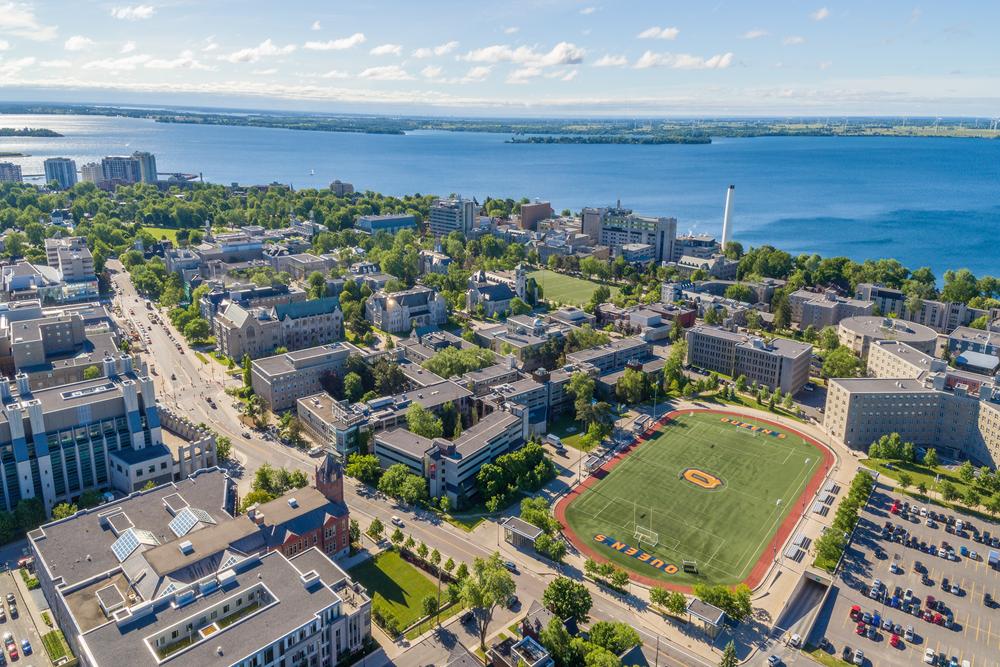Introducing the Class of 2024
September 24, 2020
Share

Queen’s has welcomed over 5,000 first-year students this fall, and while most classes are being delivered remotely, the beginning of the academic year marks a significant milestone for the newest members of our community.
“This year’s first-year students are an outstanding and diverse group, and I know they will make strong contributions to the Queen’s community,” says Ann Tierney, Vice-Provost and Dean of Student Affairs. “This unique start to their studies is certainly unlike that of any other class in our history. We have been working hard to welcome them and help them create meaningful connections to help ease their transition to university during these unprecedented global circumstances.”
The university received over 46,000 applications for the Class of 2024, and they join Queen’s from far and wide. They come from 10 provinces and two territories in Canada. Outside of Ontario, the province with the most students is British Columbia, with more than 400 students. More than 90 students come from Alberta and from Atlantic Canada. There are also 700 international students from 54 countries and 25 U.S. states. Due to COVID-19, approximately 1,900 first-year students are living in residence, some are living off-campus in Kingston, and others made the decision to stay at home.
The first-year students have an incoming class average of 88.6 per cent. During their time at Queen’s, they will pursue programs in the Faculty of Arts and Science, the Faculty of Engineering and Applied Science, the Faculty of Health Sciences, the Faculty of Education, the Smith School of Business, and at the Bader International Study Centre.
Since students began accepting their offers of admission in the spring, Queen’s has worked to support their transition to university, particularly during the pandemic. Over the summer, the university provided online resources, programming, and social events through Summer Orientation to Academics and Resources (SOAR) in July, and 72 per cent of the Class of 2024 participated. SOAR Studies in August offered faculty-specific academic prep programming, as well as writing and learning strategy support through Queen’s Student Academic Success Services (SASS). All summer content is available all year long so students can refer back to it at any time.
Fall orientation this year was extended to two weeks and took place online from Aug. 24 to Sept. 4 with many incoming students participating in community-building activities offered by the university and by peers in their faculty/school. 70 per cent of first-year students engaged with University Orientation online content that included equity, diversity, inclusion, and Indigeneity; academic basics; health and wellness; online safety; and consent.
With the first semester now underway, Queen’s is using new methods like the digital platform Raftr to help first-year students continue to build their community. With Raftr, students can easily find out about virtual events, communicate with each other, and learn how to access Queen’s resources. The Student Experience Office is using Raftr to organize online events for all first-year students, and the Residence team is using the platform to help inform and connect the 1,900 students living on campus.
Health and safety remain top priorities for Queen’s. The university is continuing with remote delivery of classes this fall for most students, limiting the capacity of residences to under 50 per cent, making face masks mandatory, and ensuring physical distancing. A phased reopening of Athletics and Recreation facilities and programming, with new health and safety protocols, is now underway; the university has added a COVID-19 assessment tool to its on-campus mobile safety app, SeQure, and has opened a COVID-19 assessment centre for students in Mitchell Hall.
Queen’s also strongly encouraged students from areas with active outbreaks or community transmission to get tested before travelling to Kingston and asked all students to limit contact with others for 14 days after arrival.
To learn more about health and safety precautions at Queen’s, visit the COVID-19 information website.